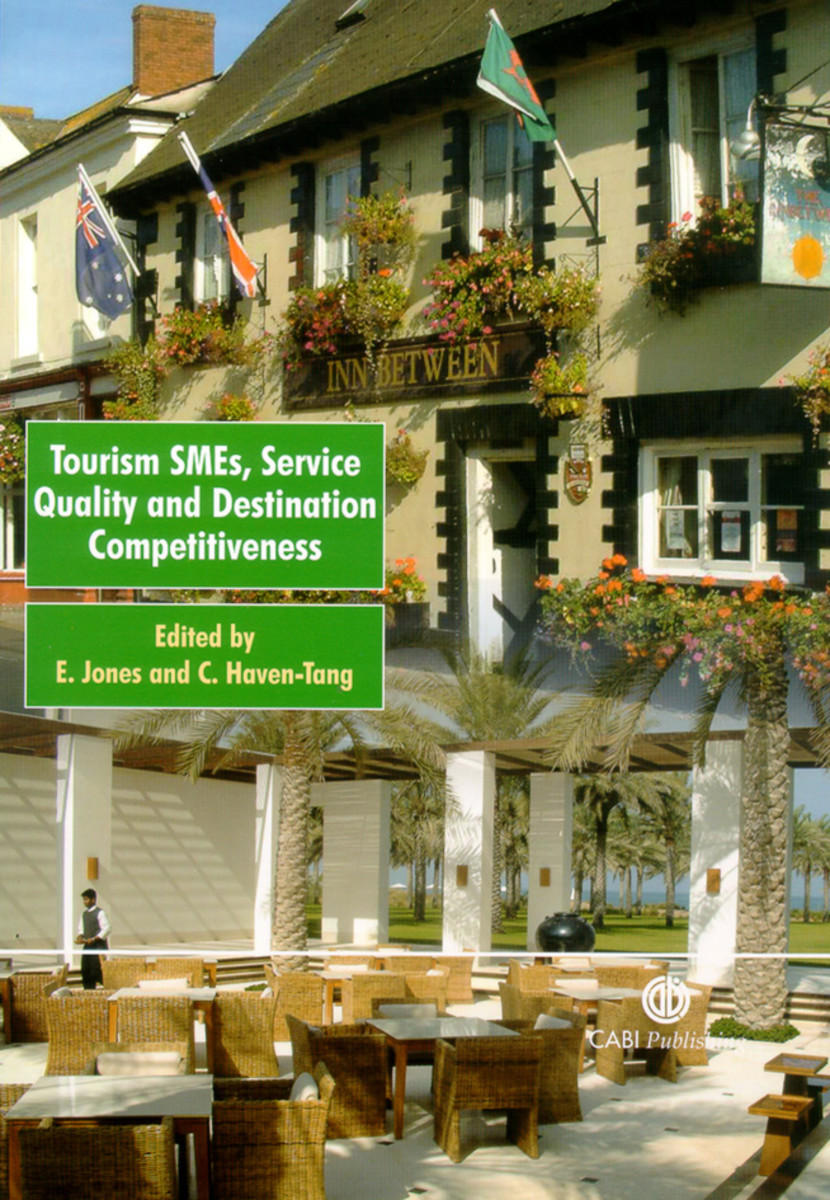Tourism SMES, Service Quality and Destination Competitiveness
- Publisher
CABI - Published
9th June 2005 - ISBN 9780851990118
- Language English
- Pages 400 pp.
- Size 6.875" x 9.75"
This book focuses in on the dominant role of SMEs (small and medium-sized enterprises) in the tourism and hospitality industry. It explores their impact on consumer perceptions of a destination, drawing on examples of small hotels, guesthouses, cafes and restaurants. It also highlights the challenges faced by SMEs to promote destination business growth - with discussion of competitiveness, quality and standards. With its entity-relationship model of a destination, this edited collection of international papers fully explores the dynamics SMEs. Case studies from around the world also puts SMEs research into a global context.
* Tourism SMEs, service quality and destination competitiveness
* Integrated tourism in Europe's rural destinations: Competition or cooperation
* The peripherality, tourism and competitiveness mix: Contradictory or confirmed?
* Policy options for the development of an indigenous tourism SME sector in Kenya
* Quality issues for the family business
* Capability-based growth: The case of UK tourism SMEs
* Producing hospitality, consuming lifestyles: Lifestyle entrepreneurship in urban Scotland
* Modelling the integration of information and communication technologies in small and medium hospitality enterprises
* Business goals in the small-scale accommodation sector in New Zealand
* The future of the tourism and hospitality workforce begins at home
* HRM behaviour and economic performance - small versus large enterprises
* Insights into skill shortages and skill gaps in tourism - a study in Greater Manchester
* A typology of approaches towards training in the Southeast Wales hospitality industry
* The utilization of human resources in tourism SMEs: A comparison between Mexico and Central Florida
* Investment support for tourism SMEs: A review of theory and practice
* Business confidence in Wales - the Wales Tourism Business Monitor
* The role of a National Tourism Organisation in developing a National Tourism Quality Scheme: The case of Hungary
* Leadership and co-ordination: A strategy to achieve professionalism in the Welsh tourism industry
* Identifying and exploiting potentially lucrative niche markets: The case of planned impulse travellers in Hong Kong
* Small and medium-sized Libyan tourism enterprises and the National Tourism Development Plan for Libya
* 'A virtual huanying, selamat dating and herzlich willkommen!' The Internet as a cross-cultural promotional tool for tourism
* The heterodoxy of tourism SMEs and the challenges of destination competitiveness


